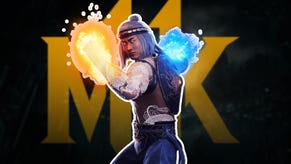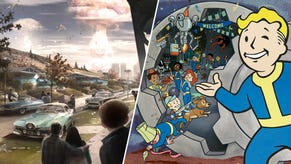Interview: Russian AI lab brings Geralt of Rivia to life in a way that could change video games forever
From video games to books, to a recent stint on one of the world’s biggest streaming services, Geralt of Rivia has cemented himself as one of the most beloved protagonists of the 21st century.
I have spent many evenings pondering about how lovely it would be to sit down and hear Geralt recount tales of woe and witchery over a nice, cold pint of ale in a Novigradian boozer. As it turns out, my fanciful imaginings aren’t quite as intangible as they once seemed. Geralt of Rivia is alive and well.
Mind Simulation Lab is a Russian company specializing in modern applications of artificial intelligence. During a recent video call, CEO Leonid Derikyants tells me that bringing Geralt to life wouldn’t have been possible if his team hadn’t been actively researching unique uses for AI over the last ten years, delving deeply into the digital integration of sciences such as psychology, philosophy, and mathematics.
However, Mind Sim’s work has ensured that it will no longer take the guts of a decade to bring video game characters to life. Now that the foundations have been laid, building responsive and intelligent virtual personalities is not only possible, but far easier than you would initially think. This new cultivation of living, coded personalities in cyberspace is unprecedented, unparalleled, and unequivocally revolutionary. It could, hypothetically speaking, change the impact games have on us forever.
Derikyants explains how this wild experiment in AI design even started. After experiencing lung issues last year, he had to cancel a last-minute trip from Moscow to Amsterdam — it just wasn’t feasible to fly cross-continent while unwell.
“I wasn’t able to fly,” he says to me. “Two weeks later I was at home recovering. It was a deep night and I woke up with some pain, so I started to play The Witcher.
“On one monitor I had The Witcher open, and on the second I tested our AI.” This was Derikyants’ second full playthrough — he already knew the game and wanted to push the envelope as far as it could possibly go.
“I thought, ‘I want to ask [Geralt] my own questions’,” he explains. “On my second monitor I got answers, but in the game I was unable to even ask questions.” Despite its magnificent scope, The Witcher 3 was built using scripted NPCs and limited dialogic choice. It’s not surprising — there is yet to be a blockbuster game that affords players the opportunity to openly converse with its protagonist in a dimly-lit pub, discussing all things mighty and mundane as if they were down the local with a close friend. That might not be the case for much longer.
Derikyants and the Mind Sim team are massive fans of both the Witcher games and books, which is why they originally chose Geralt as their guinea pig. The Witcher’s universe is rich and remarkably fleshed out, offering a world as complex and functional as the likes of Tolkien’s illustrious legendarium. Even without any knowledge of our own reality, Geralt has been through a lot — he’s a knowledgeable and intriguing character, inhabiting a world emphatically steeped in knowledge and intrigue.
“Two days ago we finished [adding] basic knowledge about The Witcher 3: Wild Hunt,” Derikyants tells me. “Now we have the first [living video game character] in the world.” He outlined the roadmap for future codex implementations, too: the team’s next point of call is to teach Geralt all about the second Witcher game, Assassins of Kings, before integrating the inaugural Witcher title into his virtual brain. After that, they’ll move onto Sapkowski’s entire literary oeuvre, making sure he inherently knows every single thing ever written about him.
“When we do this, we will get the complete vision of this world and we will be able to create any personality of any character,” he says. “We think a lot of people will want to ask Geralt something — that’s why we chose him [first].
“We have the brain, which can think.” But the brain, even in digital form, is little more than an organ — for it to function, it must be filled with information.
“First of all, we started to create an anthology,” he explains. “To be able to understand the world and speak with us, the AI has to understand, for example, what a forktail is. Who is Geralt? Who is Yennefer? Triss? We need to take any abstract that players can meet in the universe and create a picture of the world.”
Derikyants applied a sort of structuralist approach when considering the development of a reactive virtual mind. We know our laptop is a laptop because it is not a chair, or a horse, or a toilet.
“When we have enough knowledge, the brain is able to make decisions and actions [based on that],” he tells me. “Also, when we design the personality of Geralt, or Yennefer, we need to fill it with facts about the life of this character.” This is particularly interesting in Geralt’s case — did he kill Letho? If so, why? What happened after he settled down at his Toussaintian vineyard at the denouement of Blood and Wine? These are all factors you need to consider when you are cultivating the mind of someone who never technically lived, but has a life’s wealth of unique and intriguing anecdotal experiences attached to their persona.
“We want to show people that we can already do this,” Derikyants says. “It’s not in the far future - we can already make living NPCs in video games. It’s not expensive, and it’s not a long process.” In his eyes, video game worlds are miniature copies of our own. They employ simplications, naturally, as well as a suite of other necessary changes, but that is still ultimately what they are: copies. The characters who reside in them are, as a result, just like us.
This leap in progress is interesting outside of The Witcher, too. Derikyants and the team at Mind Sim have big plans off the back of this living version of Geralt, and even want to create a functional toolkit to facilitate the development of living, responsive protagonists and NPCs across the board. He points to Star Citizen as one example: “It’s going to be a huge universe, but it could be empty because NPCs are so unsmart,” he says. “They are all scripted, [with a] maximum of ten replicas of what they can say — but with our technology, every NPC in the game can have a personality.”
As a means of hammering this point home, Derikyants asks me to consider what it would be like to speak with Gaunter O’Dimm for half an hour. I was so taken aback by longing and curiosity that my attention span betrayed me for a bit. Imagine how many wonderful questions you could pose the Man of Mirrors, given the opportunity.
“If The Witcher 3 had our technology, we could spend 30 minutes or an hour speaking with Gaunter,” he says. “Or the last dialogue [sequence] in the game, with Regis. It's very emotional, especially if you know the books. When Geralt looked at me through the fourth wall, I thought that I could spend two or three hours just chatting with him.”
Derikyants reckons this phenomenon highlights a huge opportunity for game dev as a whole going forward, noting that it’s becoming increasingly difficult to impress players. “We already have photorealistic graphics,” he says. “We perceive them as a given. If a game doesn’t have realistic graphics, or [a solid] plot, we don’t consider it to be a quality product.” He also mentions that right now we’re confined to our homes in quarantine, which attaches an extra degree of significance to Mind Sim’s breakthrough.
“How many times can we watch a movie?” he asks. “Two, maybe three times. But how much time can I spend playing a game where all of the NPCs can communicate with me?” If I were to hazard a guess, I’d say quite a while.
“For example, in Dandelion’s cabaret it would be interesting to chat with Geralt’s friends for hours,” he says, specifically pondering on how cool it would be to have a beer with Zoltan. I can’t help but agree.
“We think the games industry needs a new breakthrough,” Derikyants continues. “A long time ago, when Half-Life 2 was released, it was mind-blowing. Graphics, plot, everything. It set an example, and games studios tried to achieve the same result for years.
“[Similarly], Half-Life Alyx showed us how VR could be interesting, how we could dive deeper into the gaming world. We think the next step will be artificial intelligence in games, with living characters.” Derikyants confirms that the format doesn’t really matter here — whether it’s through a VR headset or on a cheap monitor screen, living NPCs can be coded into any hardware capable of running a game.
Derikyants also suggests some other pretty cool uses of this tech, noting that Assassin’s Creed Origins and Assassin’s Creed Odyssey offer us an interesting insight into how certain historical periods transpired, and that in of itself presents a remarkable opportunity.
“It would be interesting to improve education with this,” he says. “For example, history in school is boring for many children. But we could take Origins, delete the whole plot, and make an alive Ancient Egypt, where you can walk around and speak with famous characters from this world. It’s like Jurassic Park, but safe.” Similarly to planting plots from the Witcher games and books into Geralt’s artificially intelligent brain, it would be possible to plug texts from Homer into a virtual rendition of Odysseus. “We can take any book, let the AI read it, and its knowledge will increase.”
Derikyants and the team also held a poll about possible future projects involving bringing NPCs to life. “People chose Yennefer, Triss, Dandelion, and Regis,” he says. “But I don’t know how we could make Regis because he knows more than everyone else knows together. It’s like creating some kind of unseen elder.”
He also explained that this could revolutionize voice acting. “We’re currently working with our own solution, which makes us able to copy voices of characters,” he explains. “Also, we don’t need to do the same work for every language. We teach, train and educate our AI in Russian, but he speaks in English on video. Devs only need to do this work in one language, and the AI will be able to speak in others.
“We don’t need to train it again or collect data, so it will help devs to create more content and reduce costs of voice actors,” he adds. “[But] voice actors will not lose their work. They will just be able to give their voice to a character without needing to record thousands of lines of speech.”
It’s a huge phenomenon overall. On one hand, your favourite video game characters are now technically capable of holding a conversation with you. And because they’re not actually real, they’re available to chat whenever you want. At the same time, this could absolutely revolutionize open world games — imagine travelling through Skellige as per usual, except now every single person you meet is able to talk about their culture and heritage, or just how they’re getting a bit p**sed off because their kids are being little shits. You can ask them anything and they’ll gladly shoot the s**t with you.
Geralt of Rivia is more than just a fictional character now. You can hold a real, heartfelt conversation over a beer in a virtual, hearth-lit tavern with him, if you fancy. But bringing him to life is only the beginning — if you’ve ever connected to a video game character to the extent you thought, “I’d love to be mates with them”... well, now you technically can be. Hopefully they’re not a wanker.
Read more: our interview with CD Projekt Red for The Witcher 3's fifth anniversary.















